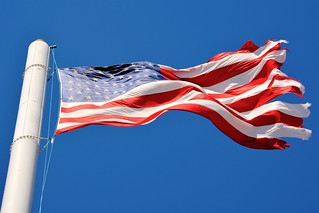Hats and Beards by Martel Chapman
Sometimes
it feels
like silence
is truth
and I am
constantly
on the cusp
of holding
it near
But once
possession
presses
its face
to the mirror
silence turns
cold—
like anything
else
---
I don't remember his name, but there was a jazz pianist playing in Harlem during the 1920s who'd routinely battle it out with other pianists over who was the best. They'd go on for hours, banging it out, like the Lost Boys that Ragtime wrought—holding the world at bay with the curve of their wrists. So that his wife would have to come down there to fetch him, taking the subway to Harlem from Queens, because he had lost track of time, so absorbed in this jazz they'd begun to call "stride." He'd lost track of everything but the press of the pedals against his feet and the sweat of the chords sliding out from his fingertips. What a feeling that must have been. No wonder he lingered, no wonder he lived for the ivory.
I imagine his wife walking down the streets of Harlem back then, stopping and listening every time she heard some piano plinking, or crashing, past that brownstone's curtains. Think of the number of pianos being played back then. Seriously, think of it. The range of talent one heard on any given day in Jazz Age America. How many people bucked boredom, or hunger, with their music in this manner. It's staggering. We can hardly imagine a world like it today. But there it was, playing itself out, like it was no big thing. Just another Saturday, in Harlem.
And this woman—this wife—had to listen carefully, in order to single out the right piano, because she never knew where her husband might end up on that particular afternoon, and which particular people he would put in awe of him. She had to know intimately the timbre of his sound, the bounce of his beat, the chime it sang through the ears outside. She had to know him the way birds must know other birds of their type. There was a whole language there, built up over all the Saturdays preceding it. Her feet would slow, she would listen hard. And then she'd hear it.
I think I can imagine how she felt just then—the immense exasperation undercut by tenderness. For there must have been riding underneath her impatience, after she finally stumbled upon his mix of swing and jump—a beam of pride, like the sun coming out. Resentment retracted, if just for an instant, because this was her man. And he was the best.
I hope she was stern with her husband—stern, but not withering. I hope she made him make it up to her later. And I hope he felt her pride of ownership, even while promising her it would never happen again.
I hope they both knew he was lying but I also hope that she was thinking to herself, silently:
Yes, but it's him, and this is us, and it's worth it, in the end.
Because there is something searching in us that makes us bend toward creation. That lets us treat artists like gods, when they are so far from it.
It's not a bad thing, I think, to believe we are as good on the inside as the most beautiful parts we show on the out.
Illusions have their place in our selves.


